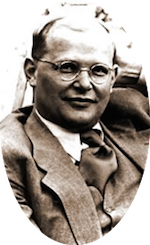* * * * * * *
Why the South Must Prevail
William F. Buckley, Jr.
National Review
24 August, 1957
The most important event of the past three weeks was the remarkable and unexpected vote by the Senate to guarantee to defendants in a criminal contempt action the privilege of a jury trial. That vote does not necessarily affirm a citizen’s intrinsic rights: trial by jury in contempt actions, civil or criminal, is not an American birthright, and it cannot, therefore, be maintained that the Senate’s vote upheld, pure and simple, the Common Law.
What the Senate did was to leave undisturbed the mechanism that spans the abstractions by which a society is guided and the actual, sublunary requirements of the individual community. In that sense, the vote was a conservative victory. For the effect of it is—and let us speak about it bluntly—to permit a jury to modify or waive the law in such circumstances as, in the judgment of the jury, require so grave an interposition between the law and its violator.
What kind of circumstances do we speak about? Again, let us speak frankly. The South does not want to deprive the Negro of a vote for the sake of depriving him of the vote. Political scientists assert that minorities do not vote as a unit. Women do not vote as a bloc, they contend; nor do Jews, or Catholics, or laborers, or nudists—nor do Negroes; nor will the enfranchised Negroes of the South.
If that is true, the South will not hinder the Negro from voting—why should it, if the Negro vote, like the women’s, merely swells the volume, but does not affect the ratio, of the vote? In some parts of the South, the White community merely intends to prevail—that is all. It means to prevail on any issue on which there is corporate disagreement between Negro and White. The White community will take whatever measures are necessary to make certain that it has its way.
What are such issues? Is school integration one? The NAACP and others insist that the Negroes as a unit want integrated schools. Others disagree, contending that most Negroes approve the social separation of the races. What if the NAACP jis correct, and the matter comes to a vote in a community in which Negroes predominate? The Negroes would. according to democratic processes, win the election: but that is the kind of situation the White community will not permit. The White community will not count the marginal Negro vote. The man who didn’t count it will be hauled up before a jury, he will plead not guilty, and the jury, upon deliberation, will find him not guilty. A federal judge, in a similar situation, might find the defendant guilty, a judgment which would affirm the law and conform with the relevant political abstractions, but whose consequences might be violent and anarchistic.
The central question that emerges—and it is not a parliamentary question or a question that is answered by merely consulting a catalogue of the rights of American citizens, born Equal—is whether the White community in the South is entitled to take such measures as are necessary to prevail, politically and culturally, in areas in which it does not predominate numerically? The sobering answer is Yes — the White community is so entitled because, for the time being, it is the advanced race. It is not easy, and it is unpleasant, to adduce statistics evidencing the median cultural superiority of White over Negro: but it is a fact that obtrudes, one that cannot be hidden by ever-so-busy egalitarians and anthropologists. The question, as far as the White community is concerned, is whether the claims of civilization supersede those of universal suffrage. The British believe they do, and acted accordingly, in Kenya, where the choice was dramatically one between civilization and barbarism, and elsewhere; the South, where the conflict is by no means dramatic, as in Kenya, nevertheless perceives important qualitative differences between its culture and the Negroes, and intends to assert its own.
NATIONAL REVIEW believes that the South’s premises are correct. If the majority wills what is socially atavistic, then to thwart the majority may be, though undemocratic, enlightened. It is more important for any community, anywhere in the world, to affirm and live by civilized standards, than to bow to the dmands of the numerical majority. Sometimes it becomes impossible to assert the will of a minority, in which case it must give way, and the society will regress; sometimes the numerical minority cannot prevail except by violence: then it must determine whether the prevalence of its will is worth the terrible price of violence.
The axiom on which many of the arguments supporting the original version of the Civil Rights bill were based was Universal Suffrage. Everyone in America is entitled to the vote, period. No right is prior to that, no obligation subordinate to it; from this premise all else proceeds.
That, of course, is demagogy. Twenty-year-olds do not generally have the vote, and it is not seriously argued that the difference between 20 and 21-year-olds is the difference between slavery and freedom. The residents of the District of Columbia do not vote: and the population of D.C. increases by geometric proportion. Millions who have the vote do not care to exercise it: millions who have it do not know how to exercise it and do not care to learn. The great majority of the Negroes of the South who do not vote do not care to vote, and would not know for what to vote if they could. Overwhelming numbers of White people in the South do not vote. Universal suffrage is not the beginning of wisdom or the beginning of freedom. Reasonable limitations upon the vote are not exclusively the recommendation of tyrants or oligarchists (was Jefferson either?). The problem in the South is not how to get the vote for the Negro, but how to equip the Negro—and a great many Whites—to cast an enlightened and responsible vote.
The South confronts one grave moral challenge. It must not exploit the fact of Negro backwardness to preserve the Negro as a servile class. It is tempting and convenient to block the progress of a minority whose services, as menials, are economically useful. Let the South never permit itself to do this. So long as it is merely asserting the right to impose superior mores for whatever period it takes to effect a genuine cultural equality between the races, and so long as it does so by humane and charitable means, the South is in step with civilization, as is the Congress that permits it to function.
* * * * * * *
And yes, I do realize that Buckley walked back much of this later in his life, as one of the below articles discusses. But he set the tone for the magazine with this, and its legacy remains woven throughout the pages of each issue.
More on Buckley, National Review, and racism:
• William F. Buckley, Rest in Praise – Steve Rendell (FAIR.org)
• How William F. Buckley, Jr., Changed His Mind on Civil Rights – Alvin Felzenberg (Politico)
• William F. Buckley and National Review's vile race stance: Everything you need to know about conservatives and civil rights – Kevin M. Schultz (Salon)
• Do Conservatives Know Much About Conservative History? – Jeet Heer (New Republic)
• Conservatives’ self-delusion on race – Joshua Tait (Washington Post)
* Lee Atwater's infamous quote on the Southern Strategy of appealing to the racist vote without looking like a racist yourself was this: «You start out in 1954 by saying, “Nigger, nigger, nigger.” By 1968 you can’t say “nigger”—that hurts you, backfires. So you say stuff like, uh, forced busing, states’ rights, and all that stuff, and you’re getting so abstract. Now, you’re talking about cutting taxes, and all these things you’re talking about are totally economic things and a byproduct of them is, blacks get hurt worse than whites.… “We want to cut this,” is much more abstract than even the busing thing, uh, and a hell of a lot more abstract than “Nigger, nigger.”»




















No comments:
Post a Comment